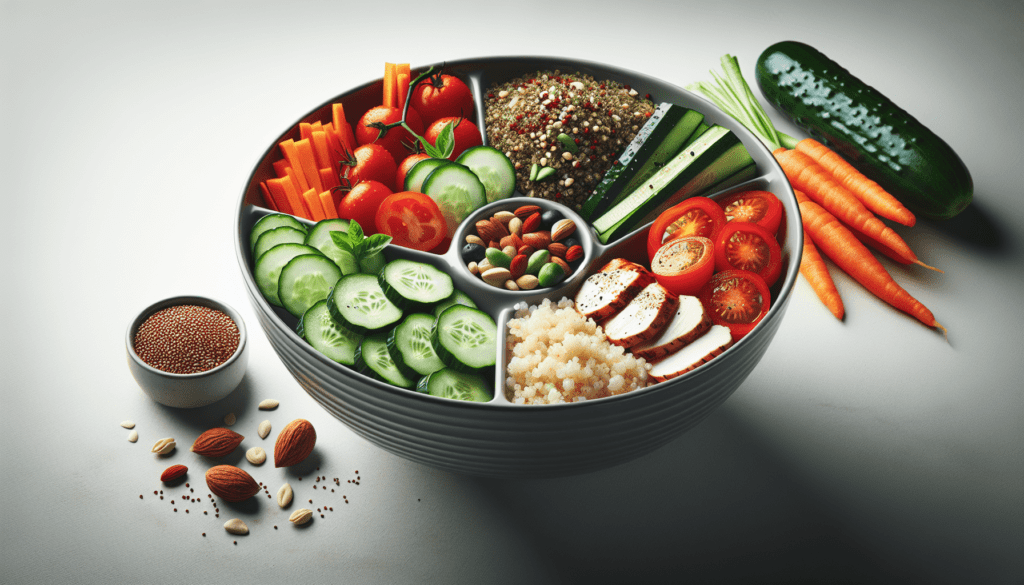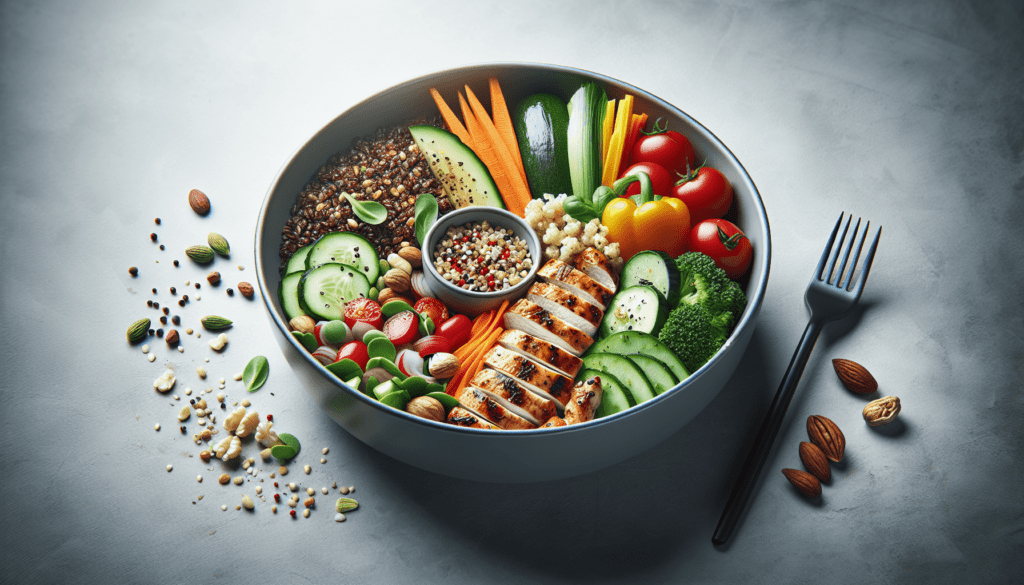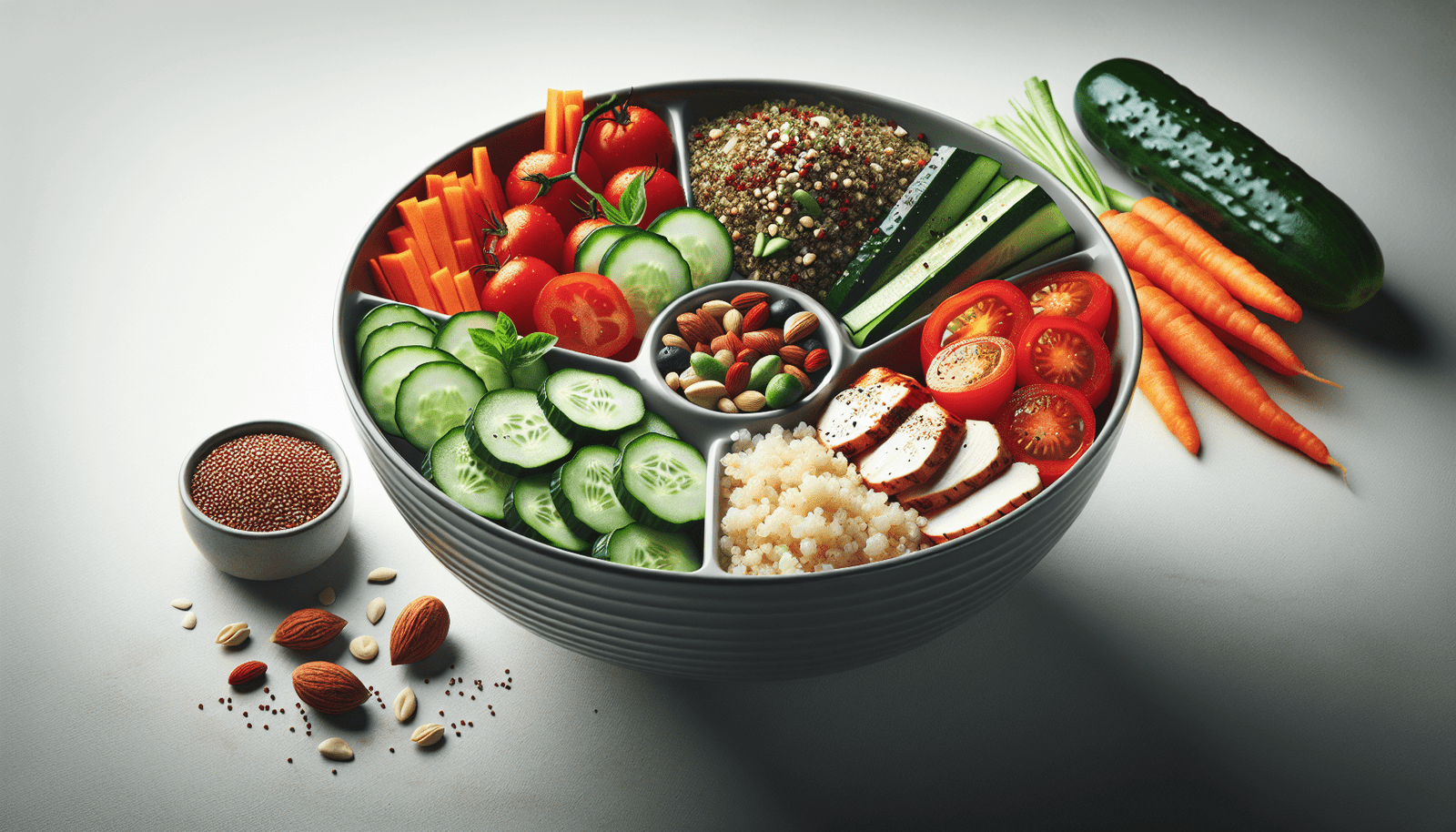You’re gearing up for that next big competition, and every advantage counts. In “Optimizing Nutrition for MMA Conditioning,” you’ll discover how the right balance of nutrients can fuel your training, boost your endurance, and enhance your overall performance. This article offers practical advice on meal planning, hydration strategies, and key dietary components to ensure you’re in peak condition when you step into the octagon. Get ready to take your conditioning to the next level with smart nutrition choices tailored to the demands of MMA. Have you ever wondered how top MMA fighters maintain their strength, endurance, and agility with seemingly superhuman ease? The secret often lies not only in their rigorous training but also in optimizing their nutrition to power their way through intense workouts and grueling fights.
In our article, “Optimizing Nutrition for MMA Conditioning,” we’re going to break down everything you need to know to fuel your body like a professional Mixed Martial Artist. Whether you’re an aspiring fighter, a seasoned pro, or simply a fitness enthusiast looking to maximize your performance, understanding the nuances of nutrition specifically tailored for MMA can make all the difference.

Understanding The Demands of MMA
Before diving into specific nutritional strategies, it’s essential to grasp the physical and physiological demands placed on MMA fighters. This highly dynamic sport requires a unique combination of strength, speed, endurance, and mental toughness within short yet fierce bursts of activity.
Physical Requirements
MMA fighters need to excel in multiple physical domains:
- Strength and Power: Combatants need both explosive power for striking and grappling and sheer strength for clinching and takedowns.
- Endurance: Sustaining high-intensity effort over multiple rounds requires robust aerobic and anaerobic conditioning.
- Agility and Flexibility: Fighters must move efficiently, avoiding and delivering strikes while maintaining a full range of motion.
- Recovery: Rapid recovery between training sessions and during fights is crucial for maintaining peak performance.
Physiological Demands
From a physiological perspective, MMA combines several energy systems:
- ATP-PC System: For short bursts of power and strength, used in explosive movements like punches or takedowns.
- Anaerobic Glycolysis: For moderate duration efforts, such as combinations of striking or a series of defensive maneuvers that last up to two minutes.
- Aerobic System: For longer periods, primarily during rest periods and lower intensity movements to sustain overall endurance.
Understanding these demands helps clarify why a tailored nutrition plan is essential.
Macronutrients: The Building Blocks
Each macronutrient plays a distinct role in an MMA fighter’s nutrition plan. Striking the right balance—a mix of carbohydrates, proteins, and fats—fuels your body effectively.
Carbohydrates
Carbohydrates are your body’s primary energy source, particularly for high-intensity efforts. They break down into glucose, which is either used immediately or stored as glycogen in the liver and muscles for later use. Ensuring a steady intake of carbohydrates keeps your energy levels optimal throughout training and fight performances.
- Sources: Whole grains, fruits, vegetables, legumes.
- Recommendations: Aim for at least 50-60% of your total caloric intake from carbohydrates, adjusting based on your training intensity and duration.
Proteins
Proteins are vital for muscle repair and growth. They provide the amino acids your body needs to recover from intense workouts and build lean muscle mass, essential for strength and power.
- Sources: Lean meats, fish, eggs, dairy, legumes, and plant-based proteins like quinoa and tofu.
- Recommendations: Consume around 1.6 to 2.2 grams of protein per kilogram of body weight daily, depending on your workout intensity.
Fats
Fats are critical for long-term energy and overall health. They support hormone production, cell structure, and nutrient absorption, making them indispensable in a well-rounded diet.
- Sources: Nuts, seeds, avocados, olive oil, fatty fish.
- Recommendations: Aim for fats to make up about 20-30% of your daily caloric intake.
Here’s a simple table to summarize macronutrient distribution for an MMA fighter:
| Nutrient | Recommended Intake (% of total calories) | Example Sources |
|---|---|---|
| Carbohydrates | 50-60% | Whole grains, fruits, vegetables, legumes |
| Proteins | 20-30% | Lean meats, fish, eggs, dairy, legumes |
| Fats | 20-30% | Nuts, seeds, avocados, olive oil, fatty fish |
Hydration: The Unsung Hero
Proper hydration is crucial yet often overlooked. Dehydration can impair performance, delay recovery, and cause significant health issues. As the body loses water through sweat during training, staying hydrated before, during, and after activity becomes paramount.
Daily Hydration
Aim to drink at least 3.7 liters (about 13 cups) of water per day for men, and 2.7 liters (around 9 cups) for women. This intake ensures baseline hydration but will need to be increased during intense training periods.
Pre-Workout Hydration
Begin hydrating several hours before a workout. A good rule of thumb is to consume 500 milliliters of water two hours before exercise and another 300-500 milliliters about 30 minutes before starting.
During Workout Hydration
Maintain hydration by drinking 150-250 milliliters every 15-20 minutes of exercise. Depending on the intensity and duration, you may need an electrolyte-enhanced sports drink to replenish lost salts.
Post-Workout Hydration
After training, aim to replace lost fluids within two hours. Weigh yourself before and after exercise to estimate sweat loss and drink 1.5 liters of water per kilogram of weight lost.
Timing: When To Eat What
In MMA, nutrient timing can significantly impact performance. Eating the right nutrients at the right time can enhance energy levels, improve recovery, and boost overall performance.
Pre-Workout Nutrition
A proper pre-workout meal fuels your workout. Aim to eat 2-3 hours before exercise, focusing on complex carbohydrates, lean proteins, and minimal fats.
Example Pre-Workout Meal:
- Whole grain toast with almond butter and banana slices
- Greek yogurt with berries
- Vegetable stir-fry with chicken and brown rice
During Workout Nutrition
For intense or prolonged sessions (over 90 minutes), consider small, easily digestible snacks to maintain energy levels:
- Energy gels
- Sports drinks
- Bananas or other easily digestible fruits
Post-Workout Nutrition
The post-workout window (30-60 minutes after exercising) is critical for recovery. Focus on proteins and carbohydrates to replenish glycogen stores and aid muscle repair.
Example Post-Workout Meal:
- Grilled salmon with quinoa and steamed vegetables
- Protein smoothie with spinach, fruit, and whey protein
- Chicken salad with mixed greens and whole-grain crackers

Micronutrients: The Essential Nutrients
Micronutrients—vitamins and minerals—are equally important, playing roles in energy production, muscle contraction, and immune function.
Key Vitamins
- Vitamin D: Crucial for bone health and immune function. Sources: Sun exposure, fatty fish, fortified dairy products.
- B Vitamins (B6, B12, Folate): Essential for energy production and red blood cell formation. Sources: Whole grains, meats, eggs, dairy, legumes.
Key Minerals
- Iron: Important for oxygen transport in the blood. Sources: Red meat, spinach, lentils.
- Calcium: Necessary for bone health and muscle function. Sources: Dairy products, leafy greens, almonds.
- Magnesium: Supports muscle function and energy production. Sources: Nuts, seeds, whole grains, leafy greens.
- Zinc: Boosts immune function and protein synthesis. Sources: Meat, shellfish, seeds.
Example Micronutrient-Rich Meal:
A well-rounded meal ensuring multiple micronutrient intake could include:
- Grilled chicken breast (Vitamin B and Iron)
- Steamed broccoli and spinach (Calcium and Iron)
- Quinoa (Magnesium and B Vitamins)
- Mixed nut and seed sprinkle (Zinc and Magnesium)
Supplements: Enhancing Performance
While a balanced diet should meet most of your nutritional needs, certain supplements can support performance and recovery in MMA.
Popular Supplements
- Protein Powder: Convenient source of high-quality protein, particularly after workouts.
- Creatine: Enhances performance in high-intensity training by increasing phosphocreatine stores in your muscles.
- BCAAs (Branched-Chain Amino Acids): Supports muscle recovery and reduces muscle soreness.
- Omega-3 Fatty Acids: Reduces inflammation and supports heart health.
Safety and Efficacy
Opt for supplements tested for quality and purity. Consult a healthcare professional or nutritionist to tailor supplements to your specific needs, avoiding unnecessary or potentially harmful products.
Meal Planning: Putting It All Together
Putting theory into practice with well-planned meals and snacks ensures you consistently meet your nutritional needs.
Sample Daily Meal Plan
Here’s a sample daily plan for a day of moderate to intense training:
Breakfast:
- Scrambled eggs (Protein)
- Whole grain toast (Carbohydrates)
- Avocado slices (Fats)
- Fresh orange juice (Vitamins and Minerals)
Mid-Morning Snack:
- Mixed nuts and dried fruit (Fats and Carbohydrates)
- Greek yogurt (Protein)
Lunch:
- Quinoa salad with grilled chicken, mixed greens, cherry tomatoes, cucumber, and olive oil dressing (Balanced Macronutrients and Micronutrients)
Afternoon Snack (Pre-Workout):
- Banana with a spoonful of peanut butter (Carbohydrates and Fats)
Post-Workout Smoothie:
- Spinach, frozen berries, protein powder, almond milk (Protein, Carbohydrates, Vitamins, and Minerals)
Dinner:
- Baked salmon (Protein and Omega-3 Fatty Acids)
- Sweet potato mash (Carbohydrates)
- Steamed broccoli and carrots (Vitamins and Minerals)
Evening Snack:
- Cottage cheese with a handful of berries (Protein and Carbohydrates)
Conclusion: Your Nutritional Game Plan
Optimizing your nutrition for MMA conditioning involves a deep understanding of the sport’s demands, meticulous planning of macronutrients and micronutrients, staying hydrated, and properly timing your meals. By fueling your body correctly, you not only enhance your physical performance but also improve recovery, maintain perfect weight, and boost overall health.
Remember, everyone’s body reacts differently – personalization is key. Listen to your body, adjust as necessary, and consider consulting with a sports nutritionist to tailor your approach to your unique needs. Here’s to stepping into the ring with the energy, strength, and resilience of a true champion!

